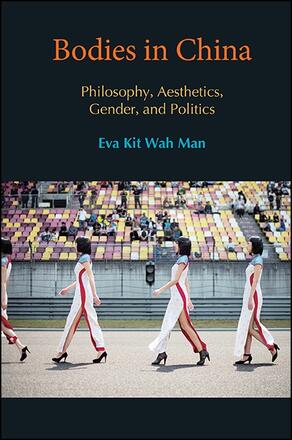
Bodies in China
Philosophy, Aesthetics, Gender, and Politics
Engages with Chinese philosophy to offer new conceptual models for reframing gender, bodies, and aesthetics.
Description
Bodies in China uses Chinese philosophy to reframe Western scholarship on gender, body, and aesthetics. Does Confucianism rule out the capacity of women as moral subjects and hence as aesthetic subjects? Do forms of Chinese philosophy contribute or correspond to patriarchal Confucian culture? Can Chinese philosophy provide alternative perspectives for Western feminist scholars? The first section considers theoretical and philosophical discussions of Western traditions and how the ideas offered by Confucians and Daoists can provide alternative body ontologies for critical feminist practices. The second section reviews female aesthetical representations ranging from The Book of Songs to the work of the controversial body artist He Chengyao. The third section traces changing perceptions of femininity from imperial to its current cosmopolitan era using a range of case studies including Ming dynasty literature, Hong Kong women's fashion in the 1960s, and the 2008 Summer Olympics in Beijing. Overall, this book discusses new conceptual models that feminist scholars are using to displace dualism and emancipate notions of the body from Cartesian models and metaphors.
Eva Kit Wah Man is Professor of Humanities and Creative Writing at Hong Kong Baptist University. She publishes widely in comparative aesthetics, feminist philosophy, cultural studies, art, and cultural criticism. She was a Fulbright Scholar at the University of California, Berkeley, and was named the AMUW Woman Chair by Marquette University.
Reviews
"…Man's book will appeal to theorists seeking to know more about traditional Chinese philosophical approaches to gender, the body, and selfhood … In an era in which gender increasingly is regarded as an internal, subjective identity, Eva Kit Wah Man's interdisciplinary and cross-cultural approach is a useful reminder of the role of social norms and embodied practice in constructing gender and the self. " — Politics & Gender
"Eva Kit Wah Man has compiled a volume that advances current endeavors toward a truly global vision of philosophy as a discipline. " — Hypatia
"This is a highly interdisciplinary work that deals with the issues from philosophical, historical, literary, cinematic, and post-colonial perspectives. Bodies in China explores a wide range of subjects seldom studied in comparative philosophy and Chinese feminist thought. First, it takes female bodies in Chinese context as the foci to discuss a different conceptual model for replacing a Cartesian dualistic model; secondly, it offers a variety of interesting materials, sources, and cases studies as cross-references to build up the ground for a further study of traditional value and contemporary practice; and thirdly, it has engaged Chinese philosophy as a critical intervention to reframe existing scholarship in different gender issues and aesthetics. " — Robin R. Wang, Loyola Marymount University